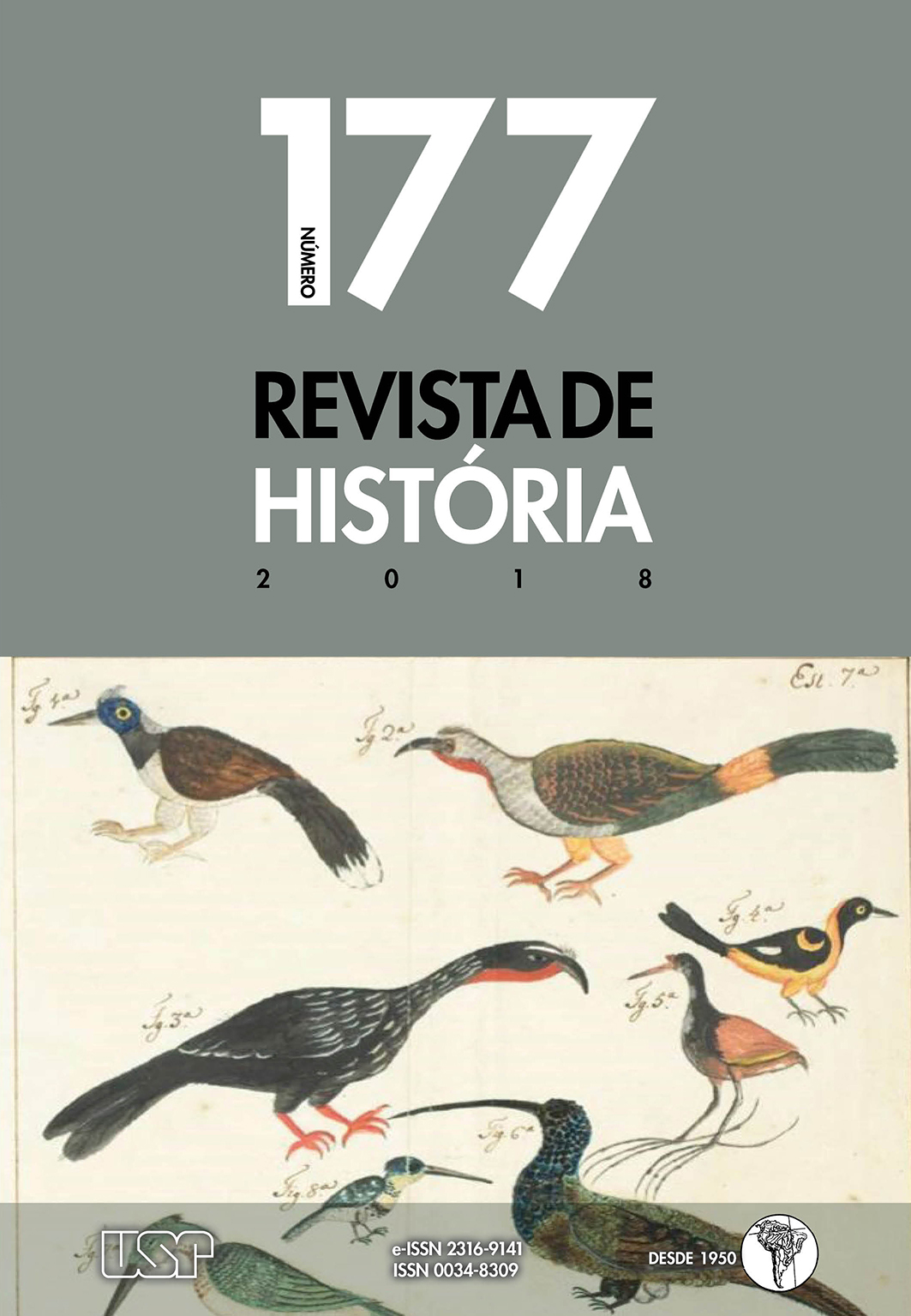Learning to Fly: James Aggrey and the Kwame Nkrumah's years of formation
DOI:
https://doi.org/10.11606/issn.2316-9141.rh.2018.138760Keywords:
Kwame Nkrumah, Africa, James Aggrey, Pan-africanism, GanaAbstract
The most remarkable characteristic of the Ghanaian politician and ideologist Kwame Nkrumah (1909-1972) is his radical Pan-Africanism. To him, the signifier Africa had the meaning of a nation to be built and reconquered. This Pan-African drive was the outcome of a visible maturation in his history. The Ghanaian educator James Aggrey (1875-1927) had an essential role in it. By means of a review of Nkrumah’s work and of Aggrey’s speeches and writings, we discuss the intellectual relations between them in this paper.
Downloads
References
AGGREY, James. A águia que não queria voar. Tradução de Sergio Tellaroli. São Paulo: Companhia das Letrinhas, 2012.
BAËTA, C. G. Missionary and humanitarian interests, 1914 to 1960. In: GANN, L. H. &
DUIGNAN, Peter (ed.). Colonialism in Africa (1870-1960), vol. II: The history and politics of colonialism (1914-1960). Nova York/Londres: Cambridge University Press, 1970.
BOFF, Leonardo. A águia e a galinha. Rio de Janeiro: Vozes, 1997.
FOSTER, Philip. Education and social change in Ghana. Chicago: University of Chicago Press, 1965, p. 166.
GARVEY, Marcus. A estrela preta. [S. l.]: Eu&Eu Realidade Rasta, 2013.
FYNN, J. K. Ghana – Asante (Ashanti). In: CROWDER, Michel (ed.). West African resistance: the military response to colonial occupation. Nova York: Hutchinson, 1972.
GOFF, Barbara. “Your secret language”: classics in the British colonies of West Africa. Londres/Nova York: Bloomsbury, 2014.
JOHNS, Sheridan W. Trade union, political pressure group, or mass movement? The industrial and commercial workers’ union of Africa. In: MAZRUI, Ali A. & ROTBERG, Robert (ed.). Protest and power in black Africa. Londres: Oxford University Press, 1970.
KILSON, Martin. The emergent elites of black Africa, 1900 to 1960. In: GANN, L. H. & DUIGNAN, Peter (ed.). Colonialism in Africa (1870-1960), vol. II: The history and politics of colonialism (1914-1960). Nova York/Londres: Cambridge University Press, 1970.
KIMBLE, David. A political history of Ghana: the rise of Gold Coast nationalism (1850-1928). Nova York/Londres: Oxford University Press, 1965.
NKRUMAH, Kwame. Un líder y un pueblo. Tradução de Enrique González Pedrero. México D. F: Fondo de Cultura Económica, 1962.
NKRUMAH, Kwame. The spectre of black power. Londres: Panaf, 1968.
NKRUMAH, Kwame. África debe unirse. Barcelona: Bellaterra, 2007.
OBICHERE, Boniface I. African critics of Victorian imperialism: an analysis. In: MADDOX, Gregory (ed.). Colonialism and nationalism in Africa, vol. I: Conquest and resistance to colonialism in Africa. Nova York/Londres: Garland, 1993
SMITH, Edwin W. Aggrey of Africa: a study in black and white. Nova York: Richard R. Smith – INC, 1930.
STEINER, George. Lecciones de los maestros. Madri: Siruela, 2016.
Downloads
Published
Issue
Section
License
Copyright (c) 2018 Revista de História

This work is licensed under a Creative Commons Attribution-NonCommercial 4.0 International License.
Autores que publicam nesta revista concordam com os seguintes termos:
- Autores mantém os direitos autorais e concedem à revista o direito de primeira publicação, com o trabalho simultaneamente licenciado sob a https://creativecommons.org/licenses/by/4.0/ (CC BY). Esta licença permite que outros distribuam, remixem, adaptem e criem a partir do seu trabalho, mesmo para fins comerciais, desde que lhe atribuam o devido crédito pela criação original. É a licença mais flexível de todas as licenças disponíveis. É recomendada para maximizar a disseminação e uso dos materiais licenciados.
- Autores têm autorização para assumir contratos adicionais separadamente, para distribuição não-exclusiva da versão do trabalho publicada nesta revista (ex.: publicar em repositório institucional ou como capítulo de livro), com reconhecimento de autoria e publicação inicial nesta revista.
- Autores têm permissão e são estimulados a publicar e distribuir seu trabalho online (ex.: em repositórios institucionais ou na sua página pessoal) a qualquer ponto antes ou durante o processo editorial, já que isso pode gerar alterações produtivas, bem como aumentar o impacto e a citação do trabalho publicado (veja O Efeito do Acesso Livre).







